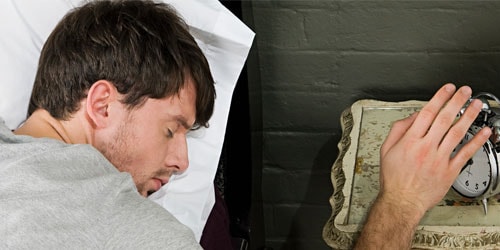3 weird reasons you can’t sleep—and how to combat them
You’ve tried warm milk, room darkening shades, counting sheep and taking a warm bath before bed, yet you just can’t get a good night’s sleep. Those oh-so-elusive zzz’s could seem out of reach because of certain sleep robbers no one seems to talk about. You trash your bedroom: If you keep a trash can on the side of your bed, you could be setting yourself up to toss and turn all night, said Dr. Wei-Shin Lai, a university physician at Penn State University and CEO of SleepPhones. “Your mind picks up on the environment you surround yourself with. If a trash can and/or clutter are one of the last things you see before going to sleep, your thoughts may be crowded and negative,” Wei-Shin said. “When you throw things away, you are done with them. Having things that you’re done with next to you makes you rehash those things in your mind rather than letting them go.” Ditching the trash can—or at least moving it far from your bed—can shut down a lot of nightly tossing and turning. You try to catch up on sleep: Inconsistent sleep schedules can mess with your body’s circadian rhythm and shuffle your sleep patterns. “There’s no such thing as catching up on sleep. You can’t ‘undo’ sleep deprivation,” said Dr. Robert S. Rosenberg, medical director of the Sleep Disorders Center of Prescott Valley and Flagstaff, Ariz. Ironically, trying to “catch up” can actually leave you more exhausted and sleep deprived. “If you get by on four to five hours of sleep a night during the week and then sleep eight, nine, 10 or more hours on weekends, you confuse your body’s sleep clock and prevent your body from falling into a normal sleep/wake cycle,” Rosenberg said. You skip breakfast: The first meal of the day has a lot to do with how well you’ll sleep later that night. That’s because having breakfast within an hour of waking up starts the timer on your body’s sleep clock, promoting the pattern that you will be sleepy when it’s time for bed. Breakfast also regulates your metabolism overall, said Dr. Carl W. Bazil, a professor of clinical neurology at Columbia University and director of the Columbia Comprehensive Sleep Center at the Neurological Institute in New York. “Without breakfast your body may think you are in a starvation situation. And that starvation mode ramps up production of stress hormones like cortisol and adrenaline, which can make it tough to sleep at night.” If changing your habits doesn’t help, it might be time to talk to your doctor about screening you for insomnia and/or other options to get a good night’s sleep.



